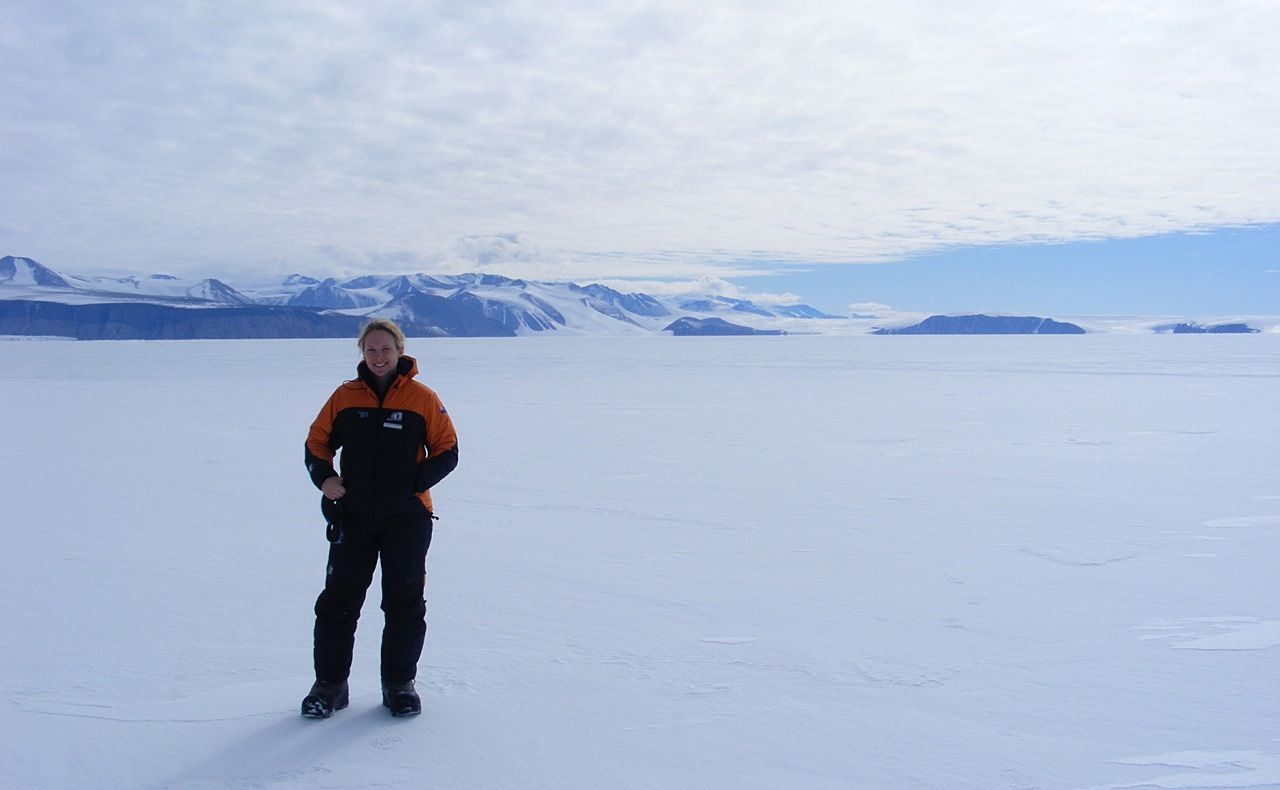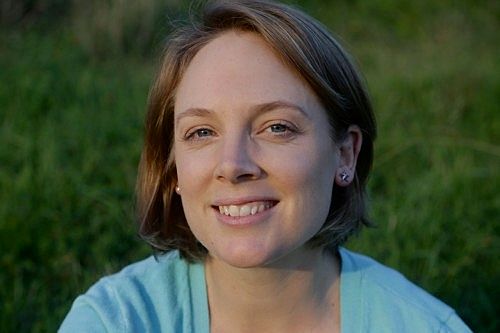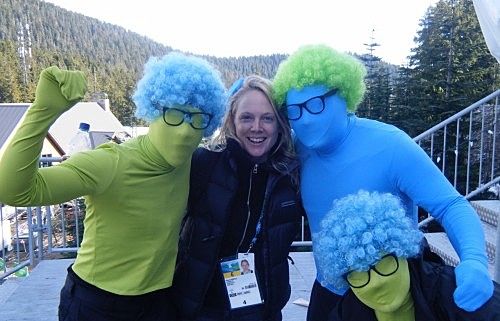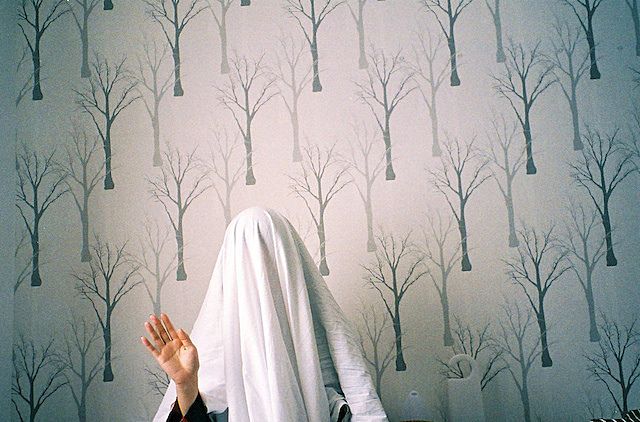Being In The Room: Naomi Arnold
Over the last few years, our print media landscape has benefitted from the emergence of a new group of talented young feature writers. This week, Gavin Bertram sits down with five of them. Today: Naomi Arnold
Over the last few years, our print media landscape has benefitted from the emergence of a new group of talented young feature writers. This week, Gavin Bertram sits down with five of them.
Naomi Arnold is employed by the Nelson Mail as a features and entertainment reporter, and columnist. In 2013 she travelled to the United States on a Robert Bell scholarship to study digital storytelling, and won a personal essay writing competition while at a non-fiction conference in Texas. She was a finalist in the Newspaper Feature of the Year - Regional Community category at this year’s Canon Media Awards.
What was it about journalism that appealed to you?
I’ve never really thought about this, but discovery I think. I just really like finding things out, and I found that I like telling them in a satisfying way. I was never really a crusading person; I studied English at university, and then worked in Australia and taught English in Korea for three years and started writing there. I ended up finding out about things and writing about them and sending them off to places. Then I thought I’d like to do that forever so I applied for journalism at Canterbury in 2008.
Were you always more interested in feature writing than news reporting?
I always knew I was. I was 28 when I got to Canterbury and was pretty sure of what I wanted at do at that stage. It was finding things out and telling people about them which was what really appealed to me. News was really exciting but it’s just a bit too quick for me.
How have you developed the specific skills required for feature writing?
Just by reading other people’s work in New Zealand and overseas, that’s been the daily sort of training. And really admiring what other people produce and finding out how they did it. I write at least one 2000 word piece every week so there’s always something new to try. You’re always so limited by time that it’s sometimes just a matter of getting through it. It’s always a matter of just getting through it actually.
Fairfax has training courses which are always good for inspiration. But I end up just picking up various bits of advice and hints rather than focused training or effort; something might apply in a situation and I’ll do that rather than applying some sort of teaching structure to it. It just sort of happens, although some more study wouldn’t hurt.
They all end up saying the same things after a while – read more, write more, take a few risks, and always ask the question ‘why should people care about this?’ I think that’s valuable, because you can get quite self-indulgent if you let yourself, so just trying to put in context for the reader.
In your opinion, what makes a great feature?
If I’m reading something and I’m halfway through before realising that I am really absorbed in it without noticing the writing, that’s a good clue. Sometimes you notice when people are trying to write what they admire, but if you’re quickly absorbed in it and drawn to read to the end then that’s the main thing. I always take that as the biggest compliment, ‘yeah, I actually read the whole thing’. It’s like the only goal is to have people read it in its entirety because it is one. A news story you can cut bits off the bottom and it doesn’t matter, but I tend to think of a feature story as being a whole and for a sub-editor to cut off the bottom of it really hurts. It’s hard to be precious in newspapers, but I do find myself being precious about it sometimes.
What are the subjects that particularly appeal to you, and why?
I lean towards health and environment and science; they’re the ones I’m really fascinated by, although I do all sorts of things. I like finding out about things I didn’t know about, and if somebody like that comes up at work I’ll grab it. I often end up writing health ones; there’s so much pain and pathos in it and it’s impossible to understand unless you’ve been there. Lately I’ve done quite a few about people’s suffering, and it’s quite interesting. But if I could write about nothing else it would just be science and the environment – I just find those the most interesting.
How do you find story ideas and then how do you develop them?
There are a variety of ways. The editor will ask you to do something, maybe a local issue or something that’s been mentioned to them as worthy of wider investigation. Somebody at work might suggest something.
Or you might come across a really interesting person, like there are a couple of world class mountain bikers living in Nelson, so I went and talked to them about their lives and why they chose to live here and how they managed these amazing careers in photography and mountain-biking.
Often just general reading will trigger something, and sometimes people just ring up and say ‘I want to tell my story but I don’t know how’ and you almost have to coach them through this process of getting the word out there. That happened with the lady who rang up about having Tourettes Syndrome. She said ‘nobody knows what I go through and I just want people to know’, so I ended up writing about her life and how she copes.
Or someone might email and say ‘there’s this really interesting wetlands project going on and you guys should find out more about it’ and it’ll have enough facets to lend itself to a wider story than just a news story. I’ve got a list of probably a hundred ideas, so there’s always something more to do.
Do you have slow-boiling projects that you work on over long periods of time?
Definitely, although it’s really easy to forget about them. I’m not very good at doing two hours every Thursday or something - I’m just not that organised. There are things that you try and get off the ground for a long time and sometimes they come to a conclusion if there’s a news angle that crops up that you quickly hook it to, but other times they just drift away.
Once you have a topic, what is your starting point?
Probably by going through the Fairfax archives and just reading everything that’s been written about it before so you’re not asking the same questions. I’d look for the gaps or the interesting comments that haven’t been explored yet. And then you do a bit of Googling and see if there’s any chatter about it online anywhere. And then you just start ringing people really and talking to them, and eventually after a couple of days they’ll start saying the same things so you know you’ve got a good handle on it.
Often what they say will bring up your intro or conclusion; they’ll say something colourful or come up with a really cool image and I’ll quickly write that down. You just sort of start writing it and it saves time just to paraphrase rather than transcribing. When I went to see the Tourettes woman I came back and wrote out maybe 800 words, just on impressions of what her life was like and how she reacted. You almost don’t need to take notes with those sorts of things; it’s just the impression that stays in your mind. Then you fill in the holes, talk to experts to answer a point that hasn’t been well made or is a glaring hole, and try and get it all done in two or three days. Trying to go for a satisfying ending and interesting beginning, and cut out the jargon and all those things.
Are the people you approach generally happy to speak?
Often you’ll say ‘we’re doing a story so this is your chance to explain your point of view, because we’re going to do it anyway’. They will be quite happy to put their point across if they feel they’re going to be well represented. I often say to them ‘I’ve got 2000 words, I’ve got heaps of space so there’s no need to cut this short, and we can get your point across’.
It depends what it is; if they’re the ones being attacked you have to be quite straight and explain the charges. If it’s more of a magaziney profile story then everyone’s quite happy to be spoken to. But they don’t owe you anything, so you are quite humble when you go to them. There’s no point in blustering or being arrogant because why should they talk to you? There’s absolutely no reason for them to if they’re not seeking promotion.
For a profile, where do you prefer to interview the subject?
Usually their home, so you can see how they live and what they’ve got on their shelves. You can pick up lots of clues looking around. And they’re usually more comfortable. So definitely at their house, but if not a café or somewhere.
It’s easy to write colour without adding anything. The phrase I hate the most is ‘as she sips a cup of tea’ or something - that just drives me nuts. When people are interviewed in cafés, they always describe the coffee like it says something about the character. They have to be telling details and they have to say something about the person.
But then you have to be careful of trying to paint a caricature of the person as well, and drawing stereotypes that are too quick and easy. It’s almost a balance - you can’t really be gratuitous in what you say. I err on the side of caution where others might not, but I might change as I get older. You always have to be really careful when picking apart someone’s house. I’d be really horrified if someone came into my house and described what they saw, and deduced my character from it - it’s awful. So it is case by case and what jumps out.
How adaptable do you have to be in an interview, and how hard do you press?
It depends on the story. I tend to notice people’s reactions and adjust as I go. If they’re getting upset I might pull back and ask something else and redirect it to something they’re more comfortable with and go back to it later. After people talk for a while they get stronger and are able to continue without breaking down. People get really flustered if they start to cry or get emotional and it’s hard for them to keep going. But if they have a chance to calm down through talking then they generally come back to it. And they might trust you a bit more after another 20 minutes.
But it’s quite hard; you’re trying to gain their trust and gain a rapport and then you might sell them down the street in Saturday’s paper. So you can’t employ too much trickery, unless it’s someone who deserves it. With your average person you’re going to meet them again, at the supermarket in Nelson. There’s only so much smart-arse stuff you can get away with in a smaller community. I’m conscious of having a home here as well, so I’m just trying to respect people so even if they’re not happy with the story then their friends would recognise it and say ‘that was really great - it really describes you’ and then they’re okay. But they can feel quite vulnerable when it first comes out.
What is the process in terms of planning a story before you start writing?
I don’t have one. This is going to go against everything I was taught, but there’s just no time. I’ll start writing it in my head on the way home, or even in the interview. And the structure just grows from there, and it’s very rare that I’ll change that just because there is no time. I’ll sit down and start with the intro and just tell a story. You just kind of reveal it as you would to a friend, and you might go back and slot in appropriate bits. Usually the way they’ve told it is the way it will unravel on the page, just because it’s the natural storytelling way. It’s just a big mess and I’ll slowly go down it line by line and fix it and put things in the proper place.
Is the actual act of writing enjoyable for you?
It’s pulling teeth with moments of feeling pleased. Sitting down and doing it is like pulling teeth, and I can procrastinate for days on something, if you have days, which I don’t. I have to bite the bullet, so I sit down, get up, make a cup of tea, sit down... it’s a nightmare. But once you get into it then it’s a pleasure. For some reason it’s still impossible to get into it even after five years of doing it every day.
I just try and make tricks to make myself do it. I’ll listen to rain on Spotify or something, and thunder - something to block out the noise of the newsroom which is really overwhelming if you’re trying to wrote a feature story. There have been a lot of tricks and I’m still working on those. I’ve started coming to work at 6.30am and leaving at 2.30pm, so that there are one or two quiet hours which let me focus and get stuff done before it goes to shit in the afternoon.
Are there differences between feature writing for magazines and newspapers?
They are different. Magazines are obviously held in higher regard just because they’ve got more time and resource behind them and more space. I think newspapers have more space for personality to be added maybe because they are more fleeting and are gone the next day. There is some good colourful stuff in newspapers, both in news and in weekly features.
But newspapers are definitely the poorer cousin to magazines when it comes to feature writing. We tend to do more news backgrounders now than really long detailed stuff because we only have two or three days to write it. I also write a fortnightly column, a bi-weekly column, the entertainment page, and some news stuff, so it’s not the only thing I do.
It’s a skill being able to write quickly and accurately, and I think I’d actually get bored at a magazine. I’ve got quite used to the weekly turnaround now, and I don’t know if I’d end up with something materially different if I had an extra week. You end up coming to the core of it quite quickly. It would be more fleshed out of course. It would be an interesting experiment to see how much better it could be to write for a magazine.
How developed do you think feature writing is in New Zealand compared to the United States?
The States has got the amazing creative non-fiction, or narrative journalism, or new journalism, long form, or whatever you want to call it. Steve Braunias writes like that and called it ‘faux creative non-fiction’ in a speech he once gave. But Cate Brett, Tony Wall... there are so many amazing writers who have been writing for so long in New Zealand magazines and newspapers.
I think we might look at writing more creatively in newspapers as a shameful or embarrassing thing, like it’s too self-indulgent, whereas Americans do it with great seriousness and skill. Sometimes you’ll get readers saying ‘what is the point of this article? Why have you written it this way?’ I do notice there is a kind of lack of understanding of what it is with some readers, but then again Stuff is a news website, and features are dreadfully presented online.
There are brilliant writers here, and I think it’s as developed as it can be with such a small pool and with resources shrinking. I think we can be more experimental and more creative, that would be cool.
How important a development is the emergence of long form digital storytelling?
I did a project in the States on it actually, a Robert Bell scholarship where I went and spent six weeks talking to people about digital storytelling. We should definitely be doing and it shouldn’t be taking so long.
But then I’ve had my own project on the boil for about six months, and the photographer and I haven’t got around to finishing it yet. I think we should definitely be throwing resources at it and looking at different ways to tell stories online. Stuff is a horror to read feature stories on - you want a nice page. There is a lot of debate about whether the pop-out video things are distracting or if they add to the story. I think the solution might be the option to turn them all off and come back to them later.
Then there’s the debate about whether people actually read to the end. There was a project that measured not only time spent on page, but how far they go down the page. Most people read the first paragraph, tweeted it, and then left. And New Zealand doesn’t really have a commuting culture, and the long-form craze really started in the States because of all those people sitting on trains wanting something to read while WiFi was off underground. That’s the ideal time to read and the way to and home from work.
And there’s also so much competition - people watch TV with their phone or an iPad, constantly doing everything at once. Good feature writing rewards close attention, and not many of us have that any more. You really have to value that to read it, and often the only people who value it are writers themselves. Our newsroom should be using iPads and the possibilities afforded by those a lot more than we are.
Is feedback from readers and your subjects important to you?
The feedback will often come online if it’s been posted with a grabby headline. It can be really good, although who knows if they’re actually reading it at all? The feedback has often been quite measured and they’ve brought up other issues - they don’t often raise other shitty stuff with online comments.
But it’s important to me that even if the person didn’t like it that they felt it was fair, that is the most important thing. You’re not trying to please them, and you can’t please everyone, you can only try please the imaginary ‘reader’. As long as they feel it is fair then I’m happy.
Being In The Room continues throughout the week. You can follow Naomi at @naomiarnold
Previously:




